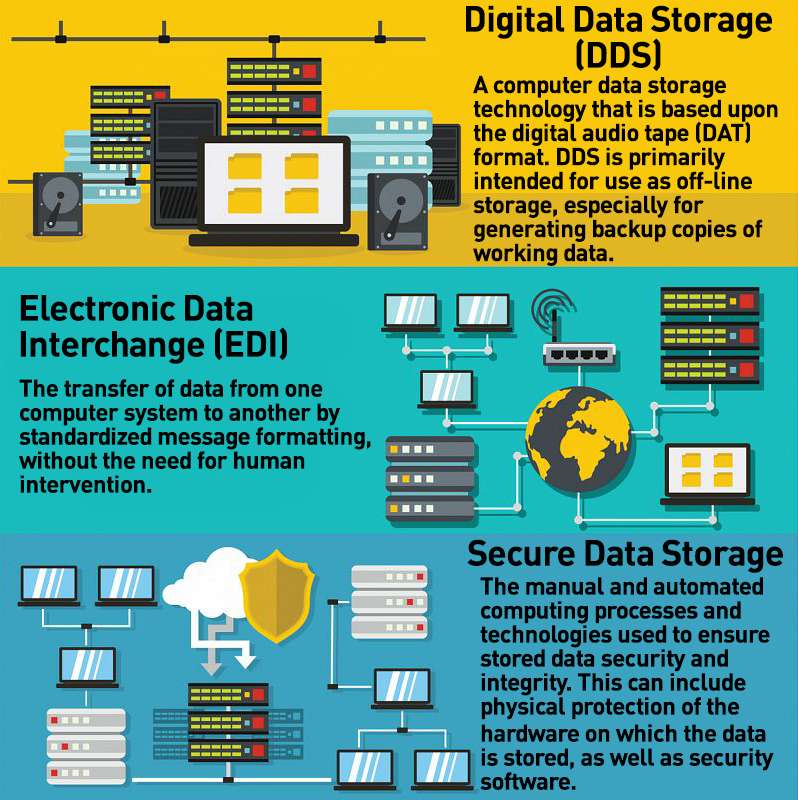The Necessary Nature of Information Devastation in Upholding Computer Safety Services and Protecting Against Unauthorized Access
In a period where data violations and identification burglary are increasingly widespread, the relevance of effective information destruction can not be overemphasized. Organizations should acknowledge that the failure to properly deal with delicate information postures not only legal and financial risks but additionally a possible erosion of client trust fund. Various methods, from information wiping to physical damage, offer as important safeguards against unauthorized access. Comprehending the implications of data damage techniques and compliance with laws raises important questions regarding the adequacy of existing strategies and their long-term stability in the face of developing threats.
Importance of Data Devastation
In an increasingly digital world, the relevance of data damage can not be overemphasized. As organizations collect substantial quantities of sensitive information, the possible repercussions of stopping working to appropriately get rid of and take care of of that information end up being significantly severe. Data violations, identity burglary, and corporate espionage position substantial hazards, highlighting the need of efficient data devastation methods.

Furthermore, as modern technology evolves, so as well do the techniques through which harmful actors look for to exploit delicate details. Organizations needs to continue to be positive and watchful in their data damage methods to protect against these developing threats. By prioritizing data destruction, companies not just safeguard their assets but likewise foster count on among customers and stakeholders, demonstrating a commitment to responsible information management and safety practices.
Techniques of Effective Information Destruction
To make certain the permanent and total damage of sensitive data, companies can employ a variety of reliable approaches customized to their certain needs. Among the most typical techniques is information cleaning, which entails using specialized software program to overwrite existing data multiple times, making healing virtually difficult. This is particularly useful for solid-state drives and tough drives, where standard removal techniques are poor.
One more efficient technique is degaussing, which makes use of solid electromagnetic fields to interfere with the magnetic domain names on storage space media, providing the data irretrievable. This method is especially suited for magnetic storage space gadgets, such as tape drives and hard drives.
Physical damage is additionally a sensible choice, including the shredding, squashing, or incineration of storage tools. This technique warranties that data can not be recouped, making it perfect for organizations handling extremely sensitive information.

Compliance With Information Protection Laws
Organizations have to not just concentrate on efficient information destruction approaches yet likewise guarantee conformity with information protection regulations that control how delicate info is handled and disposed of. Sticking to these guidelines is essential for maintaining and securing personal information customer trust fund. Rules such as the General Data Defense Regulation (GDPR) in the European Union and the Health And Wellness Insurance Portability and Accountability Act (HIPAA) in the USA enforce rigorous standards on information management, that include needs for the protected disposal of sensitive information.
To attain conformity, organizations must apply detailed information destruction plans that line up with these legal structures. This consists of determining information that needs destruction, developing procedures for secure methodsâEUR" such as shredding physical media or utilizing software that meets sector criteria for data wipingâEUR" and maintaining comprehensive documents of damage activities. Routine audits needs to be performed to make sure adherence to these policies and to determine any kind of prospective areas for enhancement.
Failing this content to abide by data protection regulations can cause significant legal implications, consisting of large fines and damages to an organization's online reputation. Therefore, incorporating compliance right into data devastation practices is not only a legal responsibility yet also a vital component of a robust information safety and security strategy.
Repercussions of Poor Data Handling
Poor information handling can cause serious repercussions that extend beyond prompt functional setbacks. Organizations might deal with significant financial losses as a result of information breaches, which commonly lead to expensive remediation efforts, lawful costs, and regulative penalties. These monetary implications can prevent and stress resources growth, eventually influencing a company's profits.
In addition, bad information handling can seriously harm an organization's credibility. Companions, customers, and stakeholders might shed rely on an entity that falls short to safeguard sensitive information, causing lowered client loyalty and potential loss of service possibilities. This disintegration of trust can take years to restore, if it can be restored whatsoever.
Additionally, organizations can face legal ramifications arising from non-compliance with information protection policies. Such infractions might cause investigations and fines, compounding the financial problem and further tarnishing the company's photo.
In the world of cybersecurity, insufficient information administration methods can create vulnerabilities that make systems much more susceptible to unauthorized accessibility and cyberattacks. Eventually, these repercussions emphasize the essential value of executing robust data handling treatments to safeguard sensitive info and keep organizational honesty.
Finest Practices for Secure Information Disposal


First of all, information need to be classified according to its level of sensitivity. Delicate information calls for much more rigorous disposal techniques, such as shredding physical papers and making use of innovative software for digital data wiping. Utilizing qualified information devastation services makes certain compliance with sector guidelines and criteria.
Second of all, organizations need to implement a data disposal plan that mandates routine audits. This plan needs to outline the treatments for information retention and destruction, making certain that out-of-date data is disposed of immediately and securely. Training employees on these procedures is necessary to promoting a society of protection understanding.
Finally, preserving comprehensive records of disposed data enhances responsibility and offers a clear audit route. This documents needs to include the sort of information destroyed, the method made use of, and the date of disposal.
Verdict
Finally, the vital of efficient data destruction is evident in its duty in improving computer safety solutions and mitigating unapproved gain access to threats. Taking on durable approaches such as data cleaning, degaussing, and physical damage, alongside compliance with guidelines like GDPR and HIPAA, is vital for guarding sensitive information. Overlooking correct information disposal techniques can result in extreme consequences, including data breaches and legal repercussions. Carrying out best methods in safe data disposal inevitably strengthens business honesty and client depend on.
In an era where information breaches and identification theft are increasingly common, the significance of effective data destruction can not be overemphasized. data destruction. Data violations, identification burglary, and company reconnaissance pose considerable hazards, emphasizing the need of reliable data destruction practices
Compliance with guidelines such as GDPR and HIPAA mandates that organizations implement rigorous information protection measures, consisting of the protected destruction of data at the end of its lifecycle.
By prioritizing data devastation, firms not just shield their assets yet additionally foster count on among customers and stakeholders, showing a read dedication to liable data monitoring and safety methods.
Organizations should not just focus on effective data destruction methods yet additionally guarantee compliance with information defense policies that govern how delicate info is dealt with and disposed of.
Comments on “How Robust Data Destruction Enhances Your Overall Cyber Security Measures”